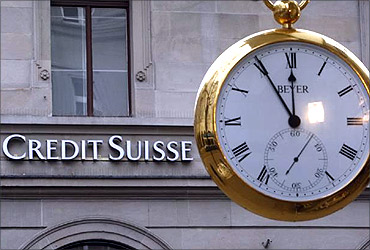WASHINGTON, D.C. — On Tuesday, the U.S. Department of Justice’s tax division announced an agreement with Switzerland that let most Swiss banks avoid prosecution by paying fines and also turning over information on the accounts of American citizens. The agreement does not protect individual bank staff or the U.S. account holders from prosecution and/or fines if they were not reporting their income to U.S. authorities.
The financial penalties are based on a percentage of unreported American accounts at the participating bank. The formula escalates depending on when the accounts were opened, to reflect the Justice Department’s focus on banks that courted “leavers,” Americans who transferred funds from one bank to another to avoid ramped up enforcement efforts that began in 2008.
“The U.S. believes that a number of Swiss banks marketed themselves to customers leaving banks under investigation, and the penalty structure in this agreement is meant to sanction such efforts,” said Mark Matthews of Caplin & Drysdale, a former IRS and DOJ senior official. “Having said that, for any bank that wishes to avoid criminal prosecution, this agreement presents a clear and attractive opportunity to obtain peace with the U.S.”
The agreement’s disclosure framework provides an opportunity for U.S. prosecutors to obtain, reasonably promptly, the names of account holders at any bank that accepts the Justice Department’s framework.
The banks will initially provide all pertinent specific account information, except the identity of the U.S. account holder, but this data “will then give a roadmap for the U.S. to file treaty requests requiring the banks to disclose account holder names, which will likely happen soon afterwards” said Scott Michel, another Caplin partner and the firm’s President. The agreement requires the participating financial institution to cooperate with any treaty request, and the Swiss government has agreed to treat such requests expeditiously.
The agreement provides that financial institutions may reduce their penalties for accounts that participate in the IRS’s Offshore Voluntary Disclosure Program. Cono Namorato, Caplin’s senior criminal tax partner and also a former high level IRS and DOJ official, said “we expect that there will still be a large number of Americans with unreported accounts at Swiss banks whose directors will find this deal attractive as a means to reduce their own penalties. Affected account holders should in any event seriously consider immediately undertaking a voluntary disclosure to protect themselves.”
Caplin & Drysdale, with offices in Washington and New York, has handled over 1,000 voluntary disclosures by U.S. taxpayers with unreported accounts held around the world. The firm has also provided advice to foreign financial institutions and represented dozens of taxpayers under audit or criminal investigation arising from unreported foreign accounts.
Thanks for reading CPA Practice Advisor!
Subscribe Already registered? Log In
Need more information? Read the FAQs
Tags: Income Taxes, IRS




